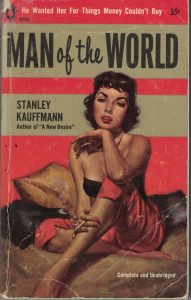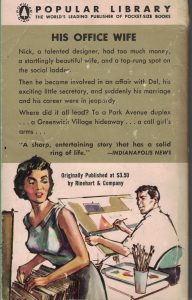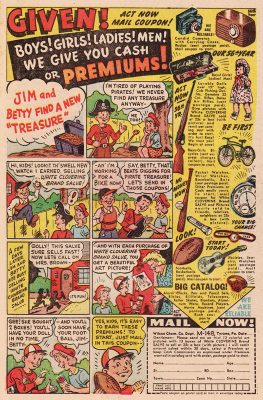I spend two hours a day exercising. This will not make me slender or muscular or fit or fabulous. It will, however, enable me to get out of bed safely, to walk up the street, to cook, to work. On a bad day, I do at least a half hour. On a good day, whenever I need even a 3 minute pause in work, I do stretches. Some bodies require greater effort than others to do the everyday. Mine is one of them. Every day I do these exercises means less pain the next day. Each day I give in and stay sitting at the computer or the television or talking on the phone or lying in bed means that the next day will be … not good.
Why am I telling you this? I increasingly notice a problem with the way people who have invisible disabilities are treated. We need to talk about it. A blogpost is a good way of beginning a conversation when one is limited of movement. This is that post.
I use a walking stick mainly so that the rest of the world can see that I’m not capable of the things they think I ought to do. I can’t run a 100 metres at breakneck speed the way I did as a teen. On a bad day, even walking to the bus is a vast endeavour and it really helps when the bus doesn’t stop 100 metres away from the bus stop. It takes me time and effort to walk that 100 metres and… some buses don’t want to wait that long. If the driver can see the effort by looking at the walking stick, then they will stop where I’m waiting and both the bus driver and myself are happier.
Today I wish that the walking stick principle applied to my letterbox. It was bitterly cold this morning and I entirely understand the post office delivery person wanting to move as quickly as possible, but the card they left me in lieu of ringing my doorbell means I have to walk for over a kilometre to retrieve a parcel. Then I have to walk back again.
The walking stick is a critical piece of equipment, and so are the exercises. I shall do them assiduously every day until I’m able to walk up the street and get that parcel.
Every day is a set of calculations. Can I do this today? What do I need to do in order to be able to that the day after tomorrow? The more I exercise the fewer of these computations I have to make. The more I am willing to label myself as visibly disabled, the more condescending many people are, and the more I am actually able to do stuff.
I don’t get many face to face gigs any more. My writing income is significantly reduced as a result. This is rather annoying side effect of the walking stick announcement. So many organisers begin asking the most physically capable people on their lists for their events. The most physically capable of us get the work, they get the income and they get the book sales. I am still asked for online gigs (sometimes even with money attached!), but face to face in my own locality? Rarely.
It’s not that people hate me. Audiences, in fact, really like me. It’s that a lot of us are described as ‘difficult’ because we can’t do all the things, all the time. My local bookshop made up excuses when I asked them for a book launch two years ago. My audiences are good and my sales are good with those audiences (in one case there were 83 people and all the books sold out within ten minutes) but the bookshop (and writers’ centres, and community centres, and a lot of local community groups) like to organise events with someone who will come to meetings face to face. If you can’t, but can still come to the event, it’s considered not good enough. This is especially true for free events. If I’m willing to give my time but not able to meet all the other demands (“Come in today for a meeting, please”, “Can we do this online?” “No, not really. Besides, you’re local. It’s no effort for you.”) … I’m not asked again.
This is interesting for other reasons. One of the booksellers in question actually told me I should accept reduced royalties because the 50% of the cover price they got wasn’t enough for all their overheads. They were being paid for the function in question: I was not. The function promoted my books and writers are simply expected to work without pay for the vast majority of promotional events. Without pay and usually without meals. If the book launch is during a meal time, I’ve been asked to cook food for the audience, but I can’t eat myself because … it’s a performance and I need to be available to answer questions and explain the book and… all the things.
The disabilities are not the only problem then. The heart of the matter is that writers are expected to have day jobs or other sources of income. Most people see us as kind of serious amateurs, rather than as professionals.
This changes the way we do things. For me, there’s a rather special side effect given by these experiences. Since I worked out why my local income was way less than it should be and my local presence is way less than it should be, I can’t buy all the books I want. I simply don’t have the money. I prioritise what I buy. Where there are two books I want to read and I can only afford one, I will buy the one where the writer faces similar obstacles to me. Or where the writer is from a country where they have to fight an entirely different range of obstacles.
There is a really good side to all of this: my book collection sparkles with exciting work by authors who ought to be well known but are not.
I need to get back to those book posts and introduce you to some of them!

 In the annals of 1950s cheesy paperback covers, surely Man of the World should feature somewhere. The sell line (“He wanted her for things money couldn’t buy”) drips innuendo, without actually saying anything. The babe on the cover is sultry. The promise that it’s “complete and unabridged” suggests that there are naughty bits that a more timid publisher might have expurgated. I found nothing that by current standards would be considered naughty.
In the annals of 1950s cheesy paperback covers, surely Man of the World should feature somewhere. The sell line (“He wanted her for things money couldn’t buy”) drips innuendo, without actually saying anything. The babe on the cover is sultry. The promise that it’s “complete and unabridged” suggests that there are naughty bits that a more timid publisher might have expurgated. I found nothing that by current standards would be considered naughty. When my parents met my father was married to a woman named Kit, who was a model, Vogue Magazine beautiful, and apparently a… difficult person. According to the novel, the protagonists (Nick and Delia) have a rather chaste thing going on–she lives with her mother, as my mother did–and they go to the movies or out to dinner. Early on in the book she decides this is going nowhere, and moves to New York. Okay, so far it jibes with family lore. My mother moved to New York and lived in a walk-up over a men’s haberdashery across 6th Avenue from the Women’s House of Detention on 9th Street. My father moved back to New York, having split with the beautiful Kit. He had an apartment-and-studio on 11th Street. Somehow they got back together.
When my parents met my father was married to a woman named Kit, who was a model, Vogue Magazine beautiful, and apparently a… difficult person. According to the novel, the protagonists (Nick and Delia) have a rather chaste thing going on–she lives with her mother, as my mother did–and they go to the movies or out to dinner. Early on in the book she decides this is going nowhere, and moves to New York. Okay, so far it jibes with family lore. My mother moved to New York and lived in a walk-up over a men’s haberdashery across 6th Avenue from the Women’s House of Detention on 9th Street. My father moved back to New York, having split with the beautiful Kit. He had an apartment-and-studio on 11th Street. Somehow they got back together. 
 When I was a kid my brother and I collected comic books in great quantity. Collected and read and re-read and read the letters columns and the ads, entirely uncritically. Until I learned better.
When I was a kid my brother and I collected comic books in great quantity. Collected and read and re-read and read the letters columns and the ads, entirely uncritically. Until I learned better.